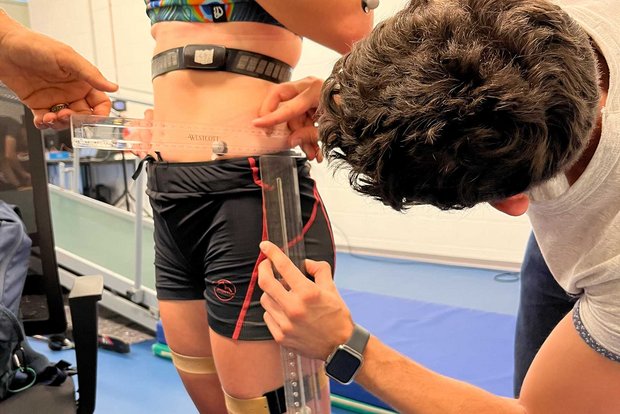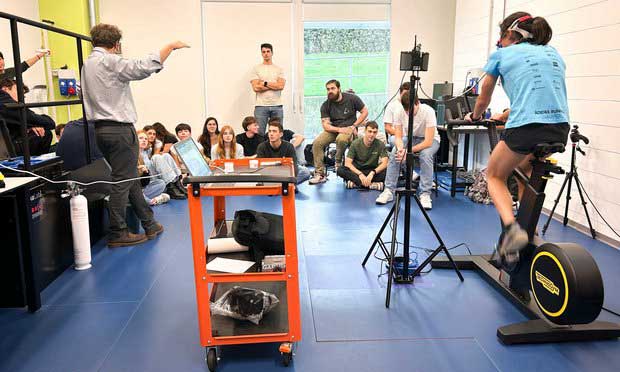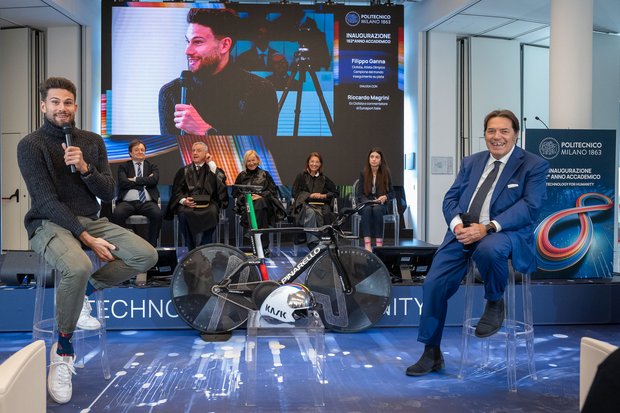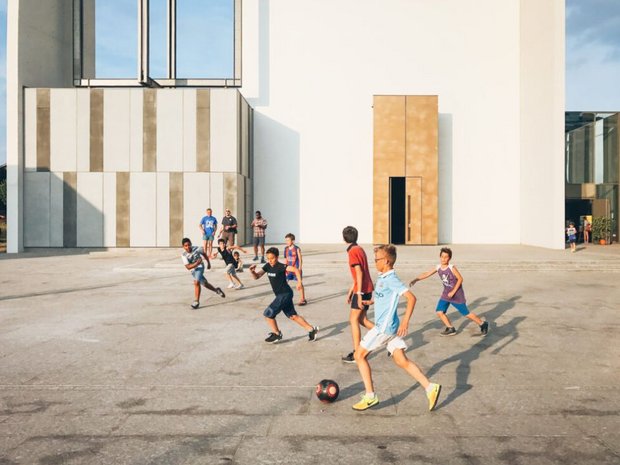In a time of great global tension marked by harrowing conflicts, sport remains one of the most powerful symbols of peace, unity, and dialogue between nations, cultures, and traditions between human beings. Sport is technology for humanity. It is the engineering of advanced materials, wearable technologies, biomechanics, data, and prosthetics. It is the ability of architects to design new infrastructure alongside civilisation’s evolving need. Sport combines aesthetics, functionality, and innovation; it is the evolution driven by design
Donatella Sciuto, Opening Speech, 162nd Academic Year

Human Performance Lab
Based at the Lecco campus, the Human Performance Lab is a centre of excellence for sports, and a flagship facility focusing on evaluating performance, the ergonomics of prosthetics and assistive devices in sporting, everyday situations, biomechanics and rehabilitation.
Since its establishment in 2022, the lab has welcomed eight national-level athletes, including a world champion and two Olympians.

E⁴SPORT
The E⁴SPORT lab is equipped with cutting-edge tools to analyse athletes, test and develop materials, and design new prototypes, bringing together expertise from multiple departments: Mechanical Engineering – for performance assessment using sensors. Electronics, Information, and Bioengineering – for motion analysis and motor skill evaluation. Design – through the TEDH laboratory for health and well-being. Chemistry – for studying material properties. Civil and Environmental Engineering – for assessing sports facility conditions. Management – for developing business models for the sports industry.

Projects developed by the MOX Laboratory integrate mathematics into sport including optimising the shape of an America's Cup hull, studying the hydrodynamic resistance of swimwear, and analysing the athletic movements of volleyball and rugby players. Since the first test for Luna Rossa in 2001, we have tested a wide range of sports at the Wind Tunnel, including cycling, motorcycling, ice skating, sledging, and skiing, and hosted elite athletes such as Filippo Ganna, Pecco Bagnaia, Tina Maze, Alex Zanardi, and Dominik Paris. The athletics track for the Paris Olympics, distinguished by its unique purple colour, was created by the Italian company Mondo in partnership with the Polimer Engineering Laboratory. Designed to be softer yet more efficient in energy return, the track provides a higher net impulse value than previous models.

Politecnico di Milano contributes to social development focusing on responsibility and exchange, fostering innovative partnerships between the university and the wider community. Bringing expertise and cutting-edge solutions to the most vulnerable contexts, it promotes co-learning and the co-production of knowledge. Inclusion is a fundamental value, within and beyond the university community, championed through projects that use the universal language of sports. Off Campus San Vittore is an initiative to bridge the gap between the prison system and the city. Through sport, it creates opportunities to learn from diversity, transforming it from a barrier into an asset. Projects such as SPèS focus on social regeneration, health promotion, and urban inclusion by revitalising the sports infrastructure within Milan’s parish youth centres, fostering community engagement and accessibility.
Architecture, town planning and design are at the heart of Politecnico di Milano’s research. Their application in sports holds immense potential, reshaping urban landscapes to better meet the needs of athletes and spectators. Some of the university’s key ongoing projects include the new multifunctional arena for the San Marino Football Federation, an innovative technological and functional hub serving the Adriatic region. The new Milan stadium at Portello, a pioneering model of a multifunctional, sustainable, and smart urban stadium integrated into the city. The new grandstand at Paolo Mazza Stadium, a modern, multifunctional urban structure within the historic fabric of Ferrara, designed to engage with the city and offer diverse services for the community.
